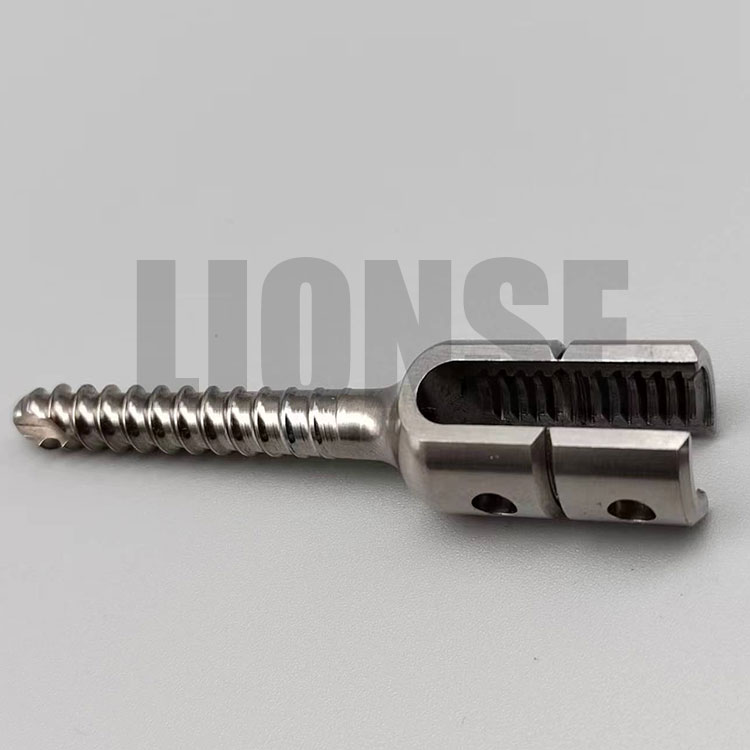Precision Titanium Machining Techniques and Best Practices
2025-09-01
Titanium is renowned for its exceptional strength-to-weight ratio, corrosion resistance, and biocompatibility, making it a preferred material in aerospace, medical, automotive, and high-tech industries. However, machining titanium presents unique challenges due to its low thermal conductivity, high chemical reactivity, and tendency to work-harden. At Lionse, we specialize in overcoming these challenges through advanced techniques, state-of-the-art equipment, and rigorous quality control. This article delves into the intricacies of precision titanium machining, highlighting best practices and detailing the key parameters of our titanium machining parts to help you make informed decisions for your projects.
Why Titanium Machining Demands Expertise
Machining titanium requires a deep understanding of material properties and cutting dynamics. Unlike aluminum or steel, titanium retains its strength at high temperatures, causing excessive tool wear and heat buildup during machining. Key challenges include:
-
Thermal Management: Titanium’s low thermal conductivity causes heat to concentrate on the cutting tool and workpiece, accelerating tool wear and potentially compromising part integrity.
-
Gallling and Built-Up Edge: Titanium’s reactivity can lead to material adhesion on cutting tools, resulting in poor surface finish and dimensional inaccuracies.
-
Work Hardening: Improper machining parameters can cause the material to harden during cutting, making subsequent operations difficult.
To address these issues, Lionse employs optimized strategies such as using sharp, coated carbide tools, maintaining appropriate cutting speeds and feeds, and employing high-pressure coolant systems to dissipate heat effectively.
Advanced Titanium Machining Techniques at Lionse
Our machining processes are tailored to maximize efficiency and precision while extending tool life. Here are some of the techniques we use:
-
High-Speed Machining (HSM): Controlled speeds and feeds reduce heat generation and improve surface finish.
-
Trochoidal Milling: This method minimizes tool engagement, reducing heat and stress on the cutter.
-
Cryogenic Machining: In some cases, we use liquid nitrogen to cool the workpiece and tool, enhancing tool life and performance.
-
Laser-Assisted Machining: For highly complex parts, we preheat the material with lasers to reduce cutting forces and improve machinability.
Key Parameters of Our Titanium Machining Parts
Our titanium components are manufactured to meet stringent industry standards. Below are the critical parameters and specifications that define our products:
Material Grades:
We work with a wide range of titanium grades, including:
-
Grade 1 (Commercial Pure)
-
Grade 2 (Commercial Pure)
-
Grade 5 (Ti-6Al-4V)
-
Grade 7 (Ti-0.2Pd)
-
Grade 23 (Ti-6Al-4V ELI)
Tolerances:
We achieve tight tolerances to ensure part functionality and interoperability:
-
Standard Machining Tolerance: ±0.005 inches (±0.127 mm)
-
High-Precision Tolerance: Up to ±0.0005 inches (±0.0127 mm)
Surface Finish Options:
-
Standard Finish: 125 µin (3.2 µm)
-
Fine Finish: 32 µin (0.8 µm)
-
Mirror Finish: < 8 µin (0.2 µm)
Available Processes:
-
CNC Milling
-
CNC Turning
-
Grinding
-
EDM (Electrical Discharge Machining)
-
Swiss Machining
Post-Processing Services:
-
Anodizing
-
Passivation
-
Heat Treatment
-
Sandblasting
-
Precision Polishing
To provide a clearer overview, here’s a table summarizing our capabilities:
| Parameter | Details |
|---|---|
| Material Grades | Grade 1, 2, 5, 7, 23 and other custom alloys |
| Max Part Size | Up to 50 inches (1270 mm) in length |
| Tolerance Range | From ±0.005 inches to ±0.0005 inches |
| Surface Finish | 125 µin to under 8 µin |
| Machining Processes | CNC Milling, Turning, Grinding, EDM, Swiss Machining |
| Quality Certifications | ISO 9001:2015, AS9100D, ISO 13485 |
Best Practices for Machining Titanium Parts
To ensure optimal results, we adhere to the following best practices:
-
Tool Selection: Use sharp, premium-grade carbide tools with specialized coatings like TiAlN or diamond-like carbon (DLC) to reduce friction and heat.
-
Cutting Parameters: Maintain moderate cutting speeds with high feed rates to avoid work hardening and heat accumulation.
-
Coolant Application: Implement high-pressure coolant systems directed at the cutting zone to manage temperature and flush chips.
-
Machine Rigidity: Utilize stable, high-precision CNC machines with robust fixtures to minimize vibration and deflection.
-
Continuous Monitoring: Employ real-time monitoring systems to detect tool wear and prevent premature failure.
Why Choose Lionse for Your Titanium Machining Needs?
With decades of experience in precision manufacturing, Lionse combines technical expertise with cutting-edge technology to deliver superior titanium components. Our commitment to quality is reflected in our certifications and customer satisfaction. We work closely with clients from design to production, ensuring that every part meets exact specifications and performance requirements.
We invite you to experience the Lionse difference. Whether you need prototypes or high-volume production, our team is ready to provide solutions that enhance your projects’ success.
Reach out to us today at [email protected] to discuss your titanium machining needs. Let’s turn your ideas into precision-engineered reality.
